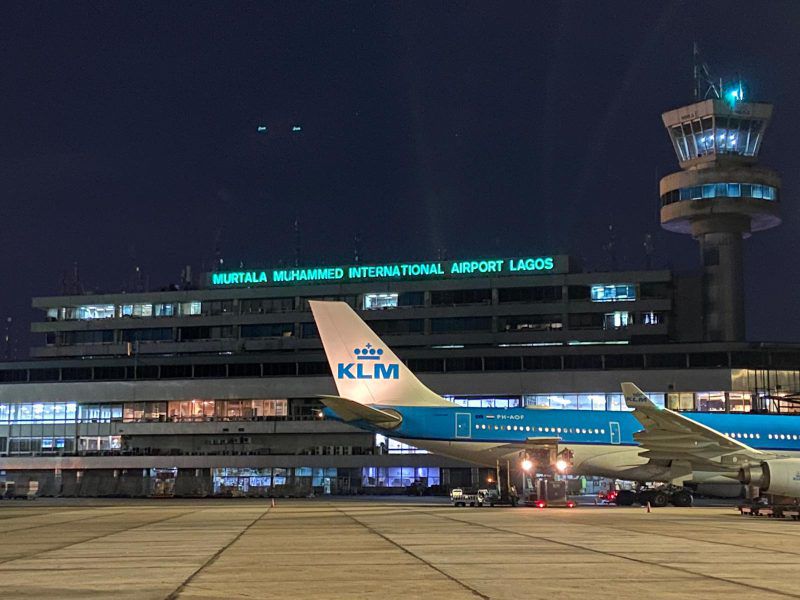
Starting 1 December 2025, anyone flying in or out of Nigeria will have to pay an extra $11.50 on their ticket. The new fee, introduced by the Nigerian Civil Aviation Authority (NCAA), is tied to the Advance Passenger Information System (APIS). The idea is to help aviation and immigration authorities work more closely to improve border security and speed up passenger clearance.
Still, with ticket prices already high, many Nigerians are asking the obvious questions: Why now? How will this affect travellers? And what does it mean for Lagos, especially with “Detty December” right around the corner?
The Levy: Details, Scope, and Rationale
As of 1 December 2025, every international ticket issued for travel into or out of Nigeria will incur an additional $11.50 charge. This increases the total security/levy charge to $31.50 per ticket (from the previous security levy of $20).
According to the NCAA, this APIS charge will be collected at the point of sale, remitted by the airline, and will remain in effect for 20 years. The aim, to build a “single-window” data system for migration and aviation agencies, improve border control, process passenger information pre-arrival, and recover the cost of the system.
However, industry voices warn of higher air-ticket costs. For example, local airlines such as Air Peace and Max Air are reportedly reviewing fares, with the levy potentially pushing up ticket prices by 5-10%.
Critics also point out that Nigeria already has a high tax burden for international air travellers; the extra levy adds to existing charges, including a Passenger Service Charge (PSC), Ticket Sales Charge (TSC), etc.
READ ALSO: Wole Soyinka Reveals He’s Been Banned from Entering the United States
What It Means for Lagos and Nigeria
The NCAA estimates that the $11.50 levy will yield about $46 million annually. Let’s place that figure in context. Nigeria recorded about 1.2 million international visitors in 2023. If we assume each of these international travellers (arrivals only) pays $11.50, that would amount to $13.8 million extra just from these inbound trips. And if we include departures (since the levy applies both ways), the figure could approach $27-30 million.
For Lagos specifically, the tourism and hospitality sector’s contribution to Lagos State’s GDP was reported at ₦4.1 trillion (roughly $10-11 billion, depending on exchange rate) in recent years. Tourism is estimated to contribute about 10 % of Lagos’s GDP.
Given that Lagos is Nigeria’s major international gateway city (with its major airports, hotels, and ecosystem) and attracts many foreign visitors during holiday seasons (especially during “Detty December”), the extra levy could be seen both as an opportunity and a risk.
Either the levy adds a direct revenue stream to federal aviation infrastructure, or indirectly, if increased costs do not deter travel, Lagos stands to benefit from stronger passenger data, improved security, and potential higher spending by foreign visitors during holiday surges.
But if the increased ticket costs deter travellers, or if airlines raise fares, fewer inbound foreign visitors may come, or they might shift via neighbouring airports/countries, reducing foreign spend in Lagos.
Given the levy’s introduction, one might expect that if Lagos remains a key destination, the city could capture a sizeable share of the $46 million in annual levy revenue (federal share aside) through ancillary spend (hotel nights, F&B, events).
With the tourism sector in Lagos already contributing N4.1 trillion to state GDP, even modest increases in foreign visitor spend can push that figure higher. However, this optimism depends on whether the government can maintain or increase inbound numbers, keep costs competitive, and ensure that infrastructure and security meet expectations.
READ ALSO: 7 Best Bus Stations in Lagos for Stress-Free Interstate Trips
Nigerians on Social Media React
The comments made online in reaction to this news reflect collective concerns about transparency, value for money, the currency in which the levy is collected, and whether the timing, ahead of the peak travel season, is well considered.
The airlines already collect taxes on behalf of the Government, isn’t this double taxation?
Also how does the passenger benefit from the Advance Passenger Information System( APIS)? What is it supposed to achieve? What does it do? It could be just about anything. There’s zero… pic.twitter.com/2AQmG1xirW— Aku na etigbu ilo. (@nkponani1) October 28, 2025
In as much as we are all pessimistic about the TAX season approaching Nigeria still, this is for those traveling INTERNATIONAL.
*Not our local travelling*.
$12 x ₦1.5k = ₦18k.
I don’t see how ₦18k will be a big deal for anyone embarking on international trip.— ACES Solar & Smart Systems (@TaskxpertJohn) October 28, 2025
For Lagos, the decision intersects neatly with its status as a holiday-travel magnet and event hub, especially during the holidays. If managed wisely, Lagos stands to benefit from increased visitor spend, stronger tourism branding and improved security experience.
However, the flip side is that passengers already face high travel costs, and the risk that fare increases might reduce demand. The key will be balancing revenue with growth-oriented, value-driven travel experiences. If Lagos and its stakeholders focus on the latter, the levy could be a stepping stone to greater tourism impact rather than a barrier to entry.
